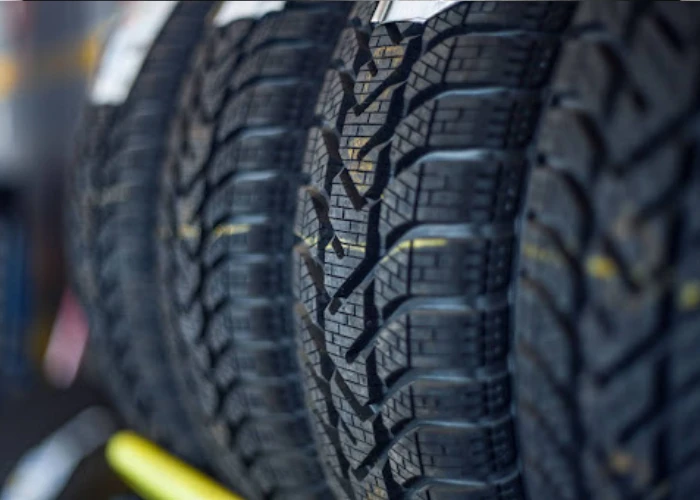Renting a car storage space is the ideal solution for those looking to protect their vehicle when it’s not in use for an extended period. Whether for the winter months, a long trip, or simply to free up space, renting a storage unit ensures your peace of mind. With several options available, choosing the right storage unit is essential to meet your specific needs. In this article, we share tips and information to help you make the right choice.
Why Opt for Renting a Car Storage Unit?
There are many reasons to choose a storage service for your car. If you’re going on a trip, lack extra space at home, or want to preserve a vehicle during a specific season, storage is the ideal solution. Rather than leaving your car exposed to the elements or at risk of vandalism, a storage facility allows you to keep it in a secure environment.
The Benefits of Vehicle Storage
-
Protection from the Elements: Indoor storage units offer protection against cold, humidity, and extreme temperatures. This is particularly important for classic cars or recreational vehicles sensitive to temperature changes.
-
Enhanced Security: Modern storage facilities are equipped with advanced security systems such as surveillance cameras, access codes, and fencing to ensure the safety of your vehicle. This gives you peace of mind, knowing your car is secure.
-
Flexible Size Options: Whether you have a small vehicle or a recreational vehicle, there is a variety of storage unit sizes and spaces to fit your needs. Small storage units are perfect for motorcycles and compact cars, while larger units are suitable for RVs and other bulky vehicles.
Reserve your car storage unit now
The Different Types of Car Storage
Indoor Storage
Indoor storage is the best option for those who want maximum protection for their vehicle. Indoor spaces provide a barrier against external elements like wind, rain, and snow. Heated storage units are also available to maintain a constant temperature, ideal for classic cars or collector vehicles.
Outdoor Storage
If you’re looking for a more affordable solution, outdoor storage is an interesting option. Although less expensive than indoor units, it’s essential to protect your vehicle with a cover to avoid damage from the elements, such as sun, rain, or snow. Some outdoor storage facilities also offer heated units, providing better protection against temperature fluctuations.
Parking Spaces
Some facilities offer specific parking spaces for vehicles. These outdoor or covered parking areas can be a good solution for cars you use regularly but want to keep secure outside your property.
Get 50% off your third month's rental!
What Types of Vehicles Can Be Stored?
Vehicle storage offers a practical and secure solution for a wide range of vehicles, whether small or large. Here are the most commonly stored types of vehicles:
-
Car Storage: This includes classic cars, collector cars, sedans, sports cars, and even electric vehicles. Self-storage is the ideal solution to protect your vehicle from the elements, theft, and damage caused by long inactivity.
-
Motorcycle Storage: Motorcycles, whether classic, sports, or collector, also require special protection. Storage helps preserve them during winter conditions or when not in use for an extended period.
-
Recreational Vehicle (RV) Storage: Motorhomes, trailers, and campers are often too large to store at home. RV storage is ideal for freeing up space while keeping the vehicle safe until the next travel season.
-
Boat and Jet Ski Storage: If you own a boat or jet ski, you can store them in units or spaces specially designed to protect them from harsh weather conditions.
-
All-Terrain Vehicle (ATV) Storage: ATV owners benefit from secure storage to keep their vehicles safe when not in use, especially during the winter season.
What Is the Cost of Renting a Car Storage Unit?
The cost of renting a car storage unit varies depending on several factors, including the size of the unit, the type of storage (indoor or outdoor), location, and the rental duration. Generally, for an indoor storage space, which offers better protection against the elements and climate-controlled conditions, storage rates range between $300 and $500 per month.
For outdoor storage or parking spaces, prices are usually more affordable, ranging from $50 to $150 per month. These rates may also fluctuate depending on additional services, such as 24/7 surveillance, secured access, or heated units.
What Size Storage Unit Do I Need for a Car?
To store a car, the size of the storage unit needed depends on the type and size of the vehicle. Typically, a unit of about 10x20 feet (200 square feet) is sufficient for most standard cars, such as sedans and small SUVs.
For larger vehicles, such as trucks or full-size SUVs, a 10x30 feet (300 square feet) unit may be necessary to provide more space. This size not only accommodates the car but also ensures easy access to manoeuvre the vehicle and store additional items if needed.
How to Choose the Best Storage Solution
-
Type of Vehicle: If you have an RV or a classic car, an indoor storage unit might be the ideal option. For smaller vehicles, such as motorcycles, smaller storage units may suffice.
-
Storage Duration: If you’re looking for a short-term solution, such as seasonal storage, monthly rental is the best option. If you plan to store your car for a long period, compare rental contracts to get the best storage rates.
-
Location and Access: The location of the storage facility is crucial. Ensure road access is easy, especially if you plan to use your vehicle regularly. Some facilities also offer 24/7 access for more flexibility.
-
Security: Security is paramount when choosing a storage service. Ensure the facility has surveillance cameras, access codes, and control systems to guarantee the safety of your vehicle.
9 Useful Tips for Storing Your Car
1. Vehicle Cleaning
Before placing your car in a storage facility, it’s important to thoroughly clean it. Dirt, dust, and debris accumulated on the paint can cause long-term damage, such as scratches or stains. A good cleaning, both exterior and interior, helps protect the bodywork and keep the interior environment clean. Additionally, applying a protective wax to the paint helps create a barrier against moisture.
2. Use a Protective Cover
Whether you opt for indoor or outdoor storage, it’s highly recommended to use a protective cover tailored to your vehicle. It prevents scratches, dust, and bird droppings in the case of outdoor parking. Make sure the cover fits snugly to avoid it rubbing against the bodywork in case of wind.
3. Battery Preparation
If you plan on long-term storage, it’s essential to prepare your vehicle’s battery. Disconnect the battery to prevent it from draining during the storage period. If you choose a monthly rental option or plan to check on your car regularly, consider using a trickle charger, which will keep the battery at an optimal charge level without overcharging it.
4. Insurance Check
Before reserving a car storage space, it’s important to check if your insurance covers vehicle storage. Some facilities may require proof of insurance before finalising the reservation. Ensure your insurance policy includes protection against damage, theft, or potential disasters during the storage period.
5. Tire Maintenance
During long-term car storage, tires can deflate or deform under the vehicle's weight. It’s advised to check the tire pressure before storing the car in a unit and slightly over inflate the tires to avoid flat spots. For additional protection, you can place your car on jack stands to relieve pressure on the tires.
6. Fuel Tank Protection
To avoid condensation in the fuel tank, especially during cold periods, it’s recommended to fill the tank before placing the vehicle in indoor or outdoor storage. You can also add a fuel stabiliser to prevent fuel degradation over time. This helps keep the engine in good condition for a trouble-free restart after storage.
7. Fluid Checks
Before storing your vehicle in a unit, it’s useful to check all fluids, including engine oil, coolant, brake fluid, and transmission fluid. Filling or changing fluids can prevent corrosion or other mechanical issues related to long-term storage. In case of winter storage, you might consider switching to a thicker oil suited for colder temperatures.
8. Air Circulation
If you’re storing your car indoors for an extended period, consider leaving the windows slightly open (just a few millimetres) to allow air circulation and prevent moisture build-up inside the vehicle. This helps prevent bad odours and reduces the risk of mould forming in the cabin.
9. Use Dehumidifiers
In indoor storage units, it can be useful to place a small dehumidifier or silica gel packs inside the car. These devices absorb moisture and prevent mould or corrosion from forming on the vehicle’s metal parts. This is particularly important if the storage space is not climate-controlled or well-ventilated.
Complete guide to storing your motorcycle
Storage Services in Canada
Make Space Storage offers heated and secure units, accessible at any time and available in various sizes to suit your needs. Our modern facilities feature advanced technologies, ensuring optimal security with 24/7 video surveillance and fully fenced premises.
Easy vehicle access makes loading and unloading simple, while our units in different sizes are suitable for both individuals and businesses. Whether you need short-term or long-term storage solutions, you can easily reserve your unit online or contact us for personalized advice.
Our self-storage units are available in:
Our services are also available in other provinces across Canada.



